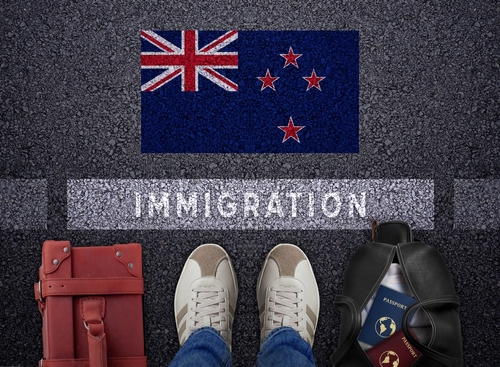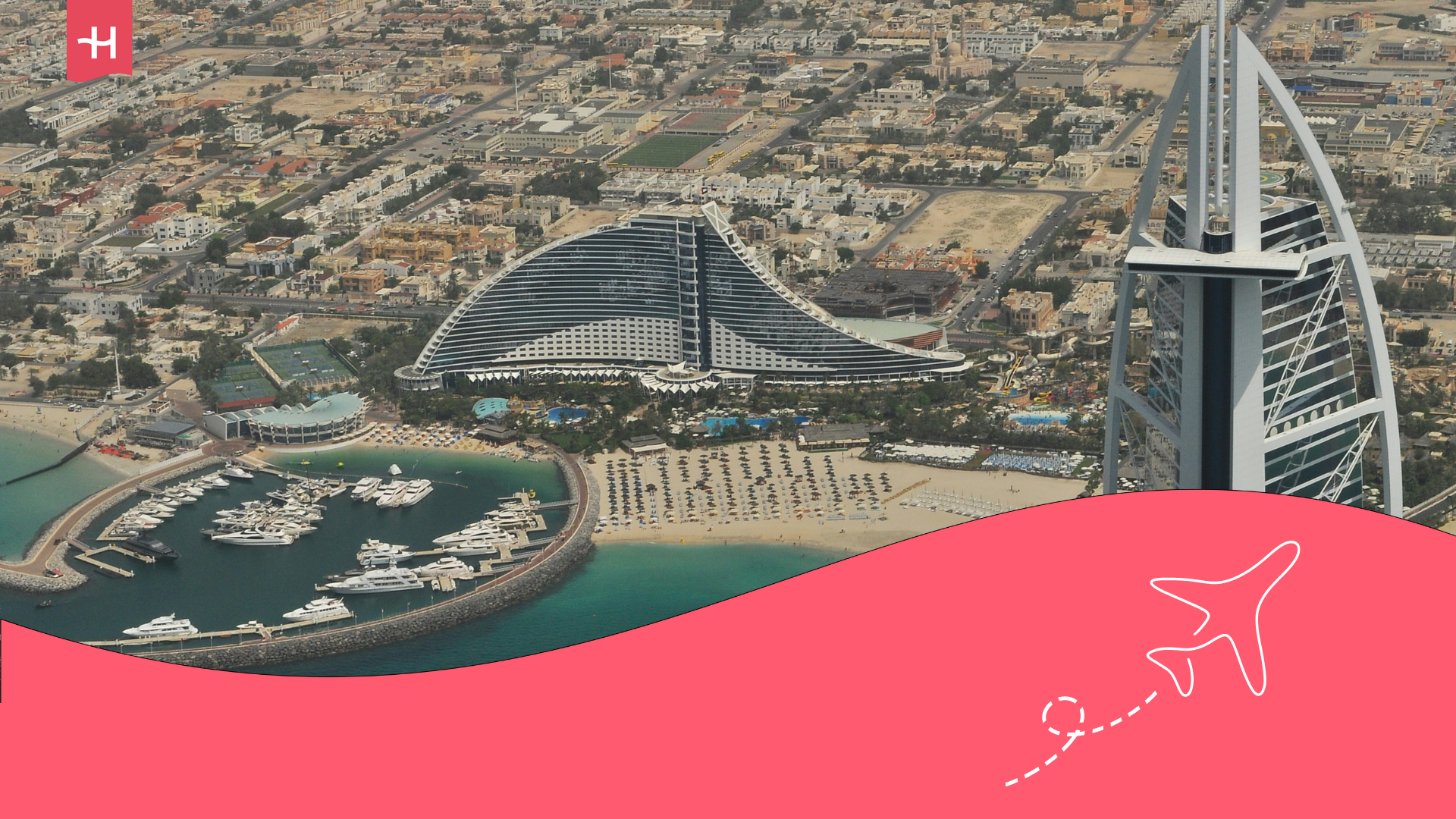Work in Australia: Requirements and opportunities
Work in Australia can be a big leap in your professional and personal experience. Discover everything you need to know about it.
Moving to the other side of the world to start a new work life sounds exciting, right? But if you’re considering working in Australia, there are several key aspects you should know before packing your bags. From the necessary visas to real job opportunities, this country isn’t just kangaroos and idyllic beaches: It is a favourite destination for professionals, students, and travellers seeking financial stability, good salary and quality of life.
In this guide, you’ll find concrete information for working in Australia as a foreigner. We explain which sectors have the highest demand, what types of visas exist, where to look for job offers, how to adapt your CV, and other factors that can make a difference in your job search. Additionally, we provide practical tips to make your experience much smoother.
Ready to take the leap? Keep reading to discover how to work in Australia legally, organised, and with the best prospects.
What are the benefits of working in Australia?
If you’ve read our article on what life is like in Australia as a foreigner, you’ll know it’s one of the countries with the best quality of life in the world. Cities like Sydney, Melbourne, Brisbane, and Adelaide top global rankings for safety, access to services, natural surroundings, economic stability, and overall wellbeing. Therefore, the opportunity to work in Australia can be a memorable experience for both your life and your CV.
Working in Australia isn’t just about earning a competitive salary; it’s also about enjoying a lifestyle many dream of but few achieve. Still, if you’re moving to this distant country, it’s wise to be prepared and set realistic expectations. Here’s a list of some reasons why thousands of foreigners choose this destination each year:
1. High salaries and fair working conditions
Although the cost of living in Australia is high, the minimum wage is one of the highest worldwide, exceeding 24 AUD per hour (€15,50 ( $16)). This means that even a part-time job covers basic expenses. Additionally, labour rights are well-protected: Regulated hours, overtime pay, sick leave, and annual paid holidays. Such benefits are rare globally, making this a significant advantage.
2. Economic stability and real job opportunities
Australia has a strong economy with low unemployment and high demand for professionals in health, technology, construction, agriculture, and services. If you have experience or training in these sectors, working in Australia is easier than you might think. Even starting with an unskilled job, like those often taken by Working Holiday or student visa holders, allows you to cover living costs, save money, and gain experience for future opportunities.
3. International community and multicultural environment
Cities like Sydney, Melbourne, and Brisbane host people from all over the world, making diversity a core part of Australian life. Inclusion, respect for other cultures, and openness to new ideas are reflected daily. Whatever your creed or religion, Australia welcomes you. This facilitates adaptation and enriches both your professional and personal experience. Additionally, working in Australia is a great chance for global networking.
4. Exceptional quality of life
One key reason so many people choose to work in Australia is its high quality of life. Beaches, nature, clean air, safety, and excellent public services all come together. Australia combines spectacular natural surroundings with modern, clean, and well-organised cities. Leaving the office and surfing within minutes is possible, as is strolling in parks or enjoying a rooftop drink with a sea view.
5. Safety and low crime rates
When choosing a place to live, whether temporarily or permanently, safety is a key consideration. No one would want to live in a country where violent thefts are common. Fortunately, Australia is one of the safest countries to live and work in. Crime rates and violent offences are very low, and carrying firearms is prohibited. Of course, common sense is still necessary, but generally, you’ll feel secure most of the time. Of course, as in any country in the world, it’s important to use common sense and avoid certain behaviours, but in general, you will feel safe most of the time.
6. Efficient healthcare and quality education
Whether you seek guaranteed quality healthcare, are moving with school-age children, or plan to study in Australia, this country is ideal. Not all visas give immediate access to public healthcare, but Australia’s healthcare system is world-renowned. Plus, if you plan to work and study, educational institutions are of excellent standard.
7. Incentives for skilled foreign workers
Australia has programs to attract international talent in sectors facing local labour shortages. If your occupation is on the Skilled Occupation List, you can access specific visas that speed up entry, and in many cases, facilitate the path to permanent residency.
Additionally, some regions offer extra benefits for settling outside major cities, such as migration points, priority for certain visas, relocation support, and even assistance with housing or employment.
As you can see, the benefits of working in Australia are many, making it a top choice for your next work adventure. By the way, if you’re working from the comfort of your computer, make sure to check out our exclusive guide for digital nomads. You will certainly find valuable information there for working remotely from the country.

What requirements must you meet to work in Australia?
If you want to work legally in Australia, the first step is obtaining a visa that allows it. This is a key requirement, because without a work permit, you’ll have to reconsider your destination. The type of visa depends on your country of origin, age, English proficiency, education, and work experience. You’ll also need good language skills, study certificates, health insurance, and other documents.
Keep in mind: Australia’s immigration processes can be demanding. Obtaining a visa may require time, detailed documentation, medical examinations, and proof of financial stability.
Therefore, before moving, check with the Australian consulate in your country which visa suits your profile and the migration requirements you must meet. You can also consult the official government website to avoid mistakes. Whatever approach you take, planning ahead is essential.
That said, here are the general requirements you should consider.
1. Hold a valid work visa
As mentioned, a visa is the first document you need to work legally in Australia. The country offers several visa types for temporary or permanent work. We recommend studying which applies to your situation carefully.
Common types include:
- Working holiday visa (subclass 417 or 462): For young people from certain countries wishing to work and holiday for one year. Countries include Argentina and Spain, among others. This is ideal for working while travelling across Australia.
- Skilled independent visa (subclass 189): For skilled workers in occupations in demand. No state or employer sponsorship required.
- Skilled nominated visa (subclass 190): Similar to the previous, but requires nomination by an Australian state. You must live and work in that state for at least two years.
- Temporary skill shortage visa (subclass 482): For those hired by an Australian company.
- Graduate visa (subclass 485): For graduates who wish to stay and work in Australia.
Visa options are numerous, so you’ll likely qualify for at least one. Prioritise this process and prepare a complete document folder before applying, which will significantly increase your chances of approval.
2. Good level of English
Since English is the main language in Australia, you must have a reasonable level to work. Requirements vary by visa type, but often you must demonstrate proficiency via IELTS, TOEFL, or PTE Academic. Generally, intermediate to advanced English is required for skilled work.
3. Experience or training in in-demand areas
The skilled visa (subclasses 189, 190, 491) targets workers aiming to live and work legally in Australia. To apply, you must have skills and experience in high-demand areas, and your occupation must be listed on Australia’s Skilled Occupation List.
This list is regularly updated. If your profession is included, your chances of obtaining a work visa increase.
4. Certificates, degrees, and equivalency
In many cases, you’ll need to validate your academic or professional qualifications with Australian authorities (Vetassess, Engineers Australia, Australian Nursing & Midwifery Accreditation Council, etc.). This process may take time and money, so plan accordingly.
5. Adequate health insurance
Some visas require private health insurance. Although it’s not always mandatory, having health coverage is highly recommended if you’re going to work in Australia. Keep in mind that, while healthcare is of excellent quality, costs can be very high for foreigners.
6. Work rights for students
If you study in Australia, your student visa allows you to work up to 48 hours per fortnight during study periods and unlimited hours on holidays. It helps cover expenses and gain work experience. The visa lasts up to five years and may include family members as dependents if requirements are met.
7. Keep personal documents up to date
Besides a valid passport, you may need translated criminal records, medical certificates, and reference letters, depending on the visa type.

What to keep in mind before starting work in Australia
Taking the first steps to work in Australia may seem overwhelming, but with the right information, everything becomes easier. These tips will help you settle in smoothly and start your work experience on the right foot:
1. Ensure you have an internet connection
It may seem obvious, but amid all the paperwork and moving tasks, connectivity can be overlooked. In the first days, you’ll need internet to search for housing, contact potential employers, check addresses, or handle online tasks. So arriving with a solution in mind is essential.
To avoid relying on public WiFi or paying high roaming fees, consider subscribing to one of the Holafly monthly plans before travelling. These provide mobile data from the moment you land, keeping you connected when it matters most. No hidden fees or complex procedures—just scan the QR code and start using your plan upon arrival!
Important: If you are a frequent traveler and want to stay connected without worrying about expensive roaming or looking for a new SIM at every destination, Holafly’s subscription plans are for you. With a single eSIM, enjoy internet in more than 170 countries for a fixed price and no surprises on your bill. Travel without limits and connect easily and securely! 🚀🌍

2. Prepare an Australian-style CV
Note this: Australian CVs are clear, concise, and do not include photos, age, or marital status. Focus on skills, relevant work experience, and references. If you have strong English, highlight it in your writing. Your CV is crucial to securing a job quickly.
3. Obtain a Tax File Number (TFN)
The TFN is your personal tax identification number, required to work legally in Australia and pay taxes. It is unique, mandatory, and without it your employer will withhold higher taxes.
The process is free, 100% online, and requires a valid visa. For that, you need to have a valid visa that allows you to work, be physically in the country when you make the application, and have your passport and local address (it can be the address of your temporary accommodation). The process is managed through the official ATO (ato.gov.au) website and usually takes between 5 to 10 business days. The number will be sent to you by postal mail, so it’s important to have an address where you can receive it.
Keep in mind that you can start working without the TFN (Tax File Number), but your employer will be required to withhold a higher percentage of your income in taxes (up to 45%). That’s why it’s a good idea to apply for it as soon as you arrive in the country to avoid losing money unnecessarily.
4. Open a local bank account
Opening a bank account is essential to receive your salary. Many Australian banks allow account opening before arrival, using your visa and passport.
Once you’re in the country, you’ll just need to go to the branch with your passport and, if you’ve started the process online, sign some forms. Within 24 to 48 hours, your account will be active and ready to use, and soon you’ll receive a debit card at the address you provide.
Having a bank account in Australia is not only the safest and most practical way to receive your salary, but it will also allow you to pay in stores, in many cases rent accommodation, pay bills, and avoid fees for using foreign cards.
Now, if you’re wondering which bank to open your account with, one of the best options is Commonwealth Bank, a very popular institution among foreigners. This also makes paying for services, rent, and daily expenses easier without foreign transaction fees.
5. Start with temporary jobs if needed
While seeking permanent work, consider temporary roles in hospitality, agriculture, retail, or delivery. These jobs provide income, improve your English, and teach you the local work culture. Working Holiday or student visa holders will find these roles excellent for gaining experience quickly.
6. Attend job fairs and meetups
Major cities like Sydney, Melbourne, Brisbane, Perth, and Adelaide host job fairs, networking events, and workshops for newcomers. They are aimed at both locals and foreigners, and range from general jobs to very specific sectors such as technology, healthcare, engineering, or agriculture. They are an excellent way to make connections and learn about job opportunities.
Platforms like eventbrite.com.au, meetup.com, and the government’s official site (jobsearch.gov.au/job-fair) list events near you. Also, check Facebook and LinkedIn groups for active expatriate communities sharing tips and job postings. Networking is key.
8. Keep your documents translated into English
From diplomas to reference letters, employers will request them. Many employers will ask for this, and having it ready can save you several headaches. Keep in mind that the translation must be official: It’s not enough to do it on your own, even if you have an excellent level of English. Translations must be official, preferably by a NAATI-accredited translator (National Accreditation Authority for Translators and Interpreters), especially for submission to Australian authorities.
Types of jobs you can do in Australia as a foreigner

Australia offers many sectors seeking foreign workers. Whether you have professional experience or are looking for a first job, opportunities abound. Here is a list of common jobs for foreigners:
- Jobs in the agricultural and rural sector: Australia constantly needs staff for fruit harvesting and picking, packaging, farm maintenance, and animal care. Physical work but well-paid; ideal for Working Holiday visa holders.
- Hospitality and tourism: Waiters, baristas, cooks, receptionists, and cleaning staff in hotels, bars, and restaurants. Coastal or tourist areas have high demand.
- Retail and customer service: Jobs in stores like Kmart, Woolworths, Coles as cashier, stocker, or sales assistant. Flexible hours and beginner-friendly.
- Delivery and logistics: Platforms like Uber Eats, Menulog, Deliveroo offer delivery jobs. Also in moving, warehouse, and distribution centres.
- Construction and trades: Bricklayer, electrician, carpenter, plumber, general maintenance. Many are on the Skilled Occupation List.
- Events and promotions: Concerts, festivals, sporting events. Tasks include ticket control, customer service, or setup. Great for quick income and networking.
- Cleaning and maintenance: Residential or commercial cleaning. Stable, well-paid, low verbal interaction jobs.
- Hostels or campsites in exchange for accommodation: Common for backpackers, saving money while working a few hours daily. It’s a common option among backpackers and allows you to save a lot of money in the beginning.
- Child and elder care: Au pair, nanny, home caregiver. Some roles require training, but there are options without prior experience.
- IT and digital professions: Developers, software engineers, data analysts, cybersecurity specialists. High-paying, sometimes remote roles.
- Healthcare and nursing: Nurses, doctors, physiotherapists. Require accreditation and local registration.
- Education and language teaching: Teaching English or other subjects in schools, private institutions, or universities. Usually requires TESOL/CELTA and university degree.
- Freelance or remote work: Designers, translators, programmers, consultants, writers. Permitted if visa allows; increasingly common. This model is becoming increasingly common.
High-demand jobs for foreigners in Australia
We’ve seen the types of jobs available to foreigners. Now let’s look at the professions in highest demand. Australia’s migration policy favours skilled workers in areas where the country needs to strengthen its workforce. This means certain professional profiles have higher chances of securing employment as a foreigner.
- Healthcare professionals: Nurses, general practitioners, dentists, physiotherapists, and social workers are in high demand. Many rural and regional areas offer additional incentives for those willing to settle there.
- Engineers and specialised technicians: Construction, mining, and infrastructure development are key sectors. Civil, electrical, mechanical engineers, and specialised technicians have excellent opportunities.
- Developers and technology experts: Programmers, cybersecurity specialists, data analysts, and AI experts are sought after. Major cities have active tech hubs and competitive salaries.
- Teachers and educators: Primary and secondary teachers in subjects such as maths, science, or languages, plus educators for children with special needs, are highly requested, especially in regional areas.
- Elderly care and home nursing staff: With an ageing population, skilled caregivers are needed in residential and home settings. University degrees may not always be required, but experience or specific courses often are.
- Skilled trades: Plumbers, electricians, welders, bricklayers, and certified painters have access to skilled migration programs. Well-paid jobs with potential for permanent residency.
- Chefs and pastry chefs: In the culinary sector, experienced and trained chefs are highly valued. Australia recognizes this occupation as a priority in its skilled migration lists.
- Agricultural and seasonal workers: During certain times of the year, there is high demand in the Australian farming sector. Fruit harvesting, vineyard maintenance, or animal care on farms are tasks that foreigners with a temporary visa can do.
Working in these sectors not only improves your chances of employment but also increases the possibility of applying for permanent residency later if desired.
Salaries and cost of living in Australia

One of the main reasons to work in Australia is the high salary, which allows a comfortable life even as a foreigner. The minimum wage in 2025 is around 24 AUD per hour (€15,50 ($16)), but in many sectors, salaries exceed this figure. Additionally, work hours are respected, overtime is paid, and leisure and nature time are valued, creating an excellent work-life balance.
Examples of salaries include:
- Waiters: 22–30 AUD per hour (€14,25–19,50 ($14–19))
- Construction workers: 30–45 AUD per hour (€19,50–29,25 ($19–20))
- Nurses and caregivers: From 35 AUD per hour (€22,75 ($23))
- IT professionals: 80,000–120,000 AUD per year (€52.000–78.000 ($52.000–78.000 USD))
- Engineers: From 90,000 AUD per year (€58.500 ($59.000))
So, how much does it cost to live in Australia? Cost of living varies by city and lifestyle. Estimated monthly expenses include:
- Room rent in a shared house: 700–1.200 AUD (€455–780 ($460–782))
- Food and groceries: 400–600 AUD (€260–390 ($260–390))
- Transport: 120–200 AUD (€78–130 ($78–130))
- Leisure, gym, and others: 200–400 AUD ($130–260 ($78–130))
- Minimum monthly estimate: 1.500–2.500 AUD (€975–1.625 ($980–1.630))
Although expenses seem high, average salaries are also substantial. Working in Australia allows you to save, travel, or even send money home.
Where to find job opportunities in Australia
As we reach the end of this guide on working in Australia, we’ll share where to find employment. Searching in a new country can feel challenging, but if you know where to look, opportunities appear quickly. Australia has a wide variety of platforms and programmes that make job access easier for foreigners. Here are the most common:
1. Online job platforms
The most common way to find work is through digital portals, such as:
- Seek (seek.com.au): Australia’s largest job platform. Filters by industry, contract type, and location.
- Indeed Australia (au.indeed.com): Ideal for all profiles, from administrative to technical roles.
- Jora (jora.com.au): Simple interface with customised alerts.
- LinkedIn: Useful for professionals seeking skilled work and networking with local companies.
- Backpacker Job Board: Focused on temporary work or Working Holiday visa holders.
2. Employment and recruitment agencies
There are companies dedicated to connecting candidates with employers. Some well-known agencies in Australia include: Hays, Adecco, Randstad, Michael Page, and Manpower. You can register online or visit their offices if you are already in the country.
3. Job fairs and networking events
Cities like Melbourne, Sydney, and Brisbane regularly organise job fairs open to the public. There are also specific events for certain sectors like IT, healthcare, or construction. It’s an excellent way to meet companies and present your CV in person.
4. Government programs and calls
Australia promotes temporary calls for sectors with high labour demand, especially in regional areas. One example of this is the state or territory-sponsored migration programs, where local authorities nominate candidates based on their professional profile.
5. Community boards and Facebook groups
In neighborhoods or communities, there are boards where informal or part-time jobs are posted. There are also Facebook groups where job offers are shared between foreigners and locals, particularly for work in hospitality, cleaning, or retail.
6. Direct contact with companies
Many Australian companies have a “Careers” section on their websites where they post job vacancies. If you already know which sector you want to work in, don’t hesitate to submit your application directly through those platforms.
Ultimately, working in Australia starts with knowing where to look. If you combine these tools and stay active, opportunities will come quickly.
Frequently asked questions about working in Australia
Yes, many jobs in Australia do not require a university degree. The country highly values work experience, practical skills, and technical training, often above professional qualifications. Trades such as carpentry, mechanics, cooking, or agricultural work are open to people without formal education, as long as they can demonstrate their training and commitment.
It depends on the type of job. For skilled positions or customer service roles, an intermediate to advanced level (B2-C1) is usually required. On the other hand, in sectors like agriculture, cleaning, or construction, a basic level of English is often enough to find work. The better your English, the more opportunities and career growth you will have.
The time varies depending on the type of visa and the demand at the time. Some may be approved in a few weeks, while others, such as skilled migration visas, may take several months. It’s crucial to prepare all the documents in advance and follow the instructions from the Department of Home Affairs to the letter.
Both options have advantages. Major cities like Sydney or Melbourne offer more job opportunities and cultural life, but they are more expensive. Regional areas have lower living costs, less competition for jobs, and in many cases, migration benefits if you plan to apply for permanent residency.
It depends on the type of visa you have. Some employer-sponsored visas restrict you to a specific sponsor. In that case, if you want to change jobs, you’ll need to find a new sponsor and modify your visa. However, if you have an independent visa (such as subclass 189), you can change employers without restrictions.





 Language
Language 


















 No results found
No results found







